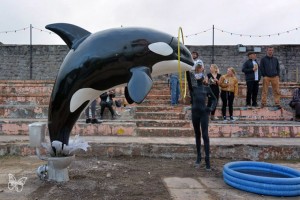CURRICULUM AND PEDAGOGY WORKS
(IN PROGRESS)
Wednesday, November 9, 2016
1:00-4:00 Scarfe 1214
Turning Spaces into Places of Learning
Panelists:
Amanda Fritzlan, Ildiko Kovaks, Kari Marken, Matthew Yanko
* You are invited to a conversation that explores the thinking/being/doing of turning traditional and nontraditional spaces into learning places. Dress for all weather. Bring your student card. Wear comfortable clothing for movement.
Readings
Gandini., L. (2012). Connecting through caring and learning spaces. In C.P. Edwards, L. Gandini & G.E. Forman (Eds.), The hundred languages of children: The Reggio Emilia experience in transformation (3rd ed.) (pp. 317-341). Santa Barbara, CA: Praeger.
Garoian, C. (2001). Performing the museum. Studies in Art Education, 42(3), 234-248.
Hart, R. (1997). The development of children’s environmental knowledge, concern, and action. In Chapter 1, Children’s participation. The theory and practice of involving young citizens in community development and environmental care ( pp. 17-22). New York, NY: Unicef.
Sobel, D. (2005). Reconceptualising environmental education. In Place-based education: Connection classrooms and communities (pp. 9-12). Great Barringtom, MA: Orion Society.
Yeager, D.S. and Walton, G.M. (2011). Social-psychological interventions in education: They’re not magic. Review of Educational Research, 81(2), pp. 267–301.
Recommended
Derr, V., Chawla, L., Mintzer, M., Flanders Cushing, D., & Van Vliet, W. (2013). A city for all citizens: Integrating children and youth from marginalized populations into city planning. Buildings, 3(3), 482-505.
Foucault, M. & Miskowiec, J. (1986). Of other spaces. Diacritics. 16(1), 22-27. Gruenewald, D. A. (2003b). The best of both worlds: A critical pedagogy of place. Educational Researcher, 82(4), pp.3-12.

 Follow
Follow